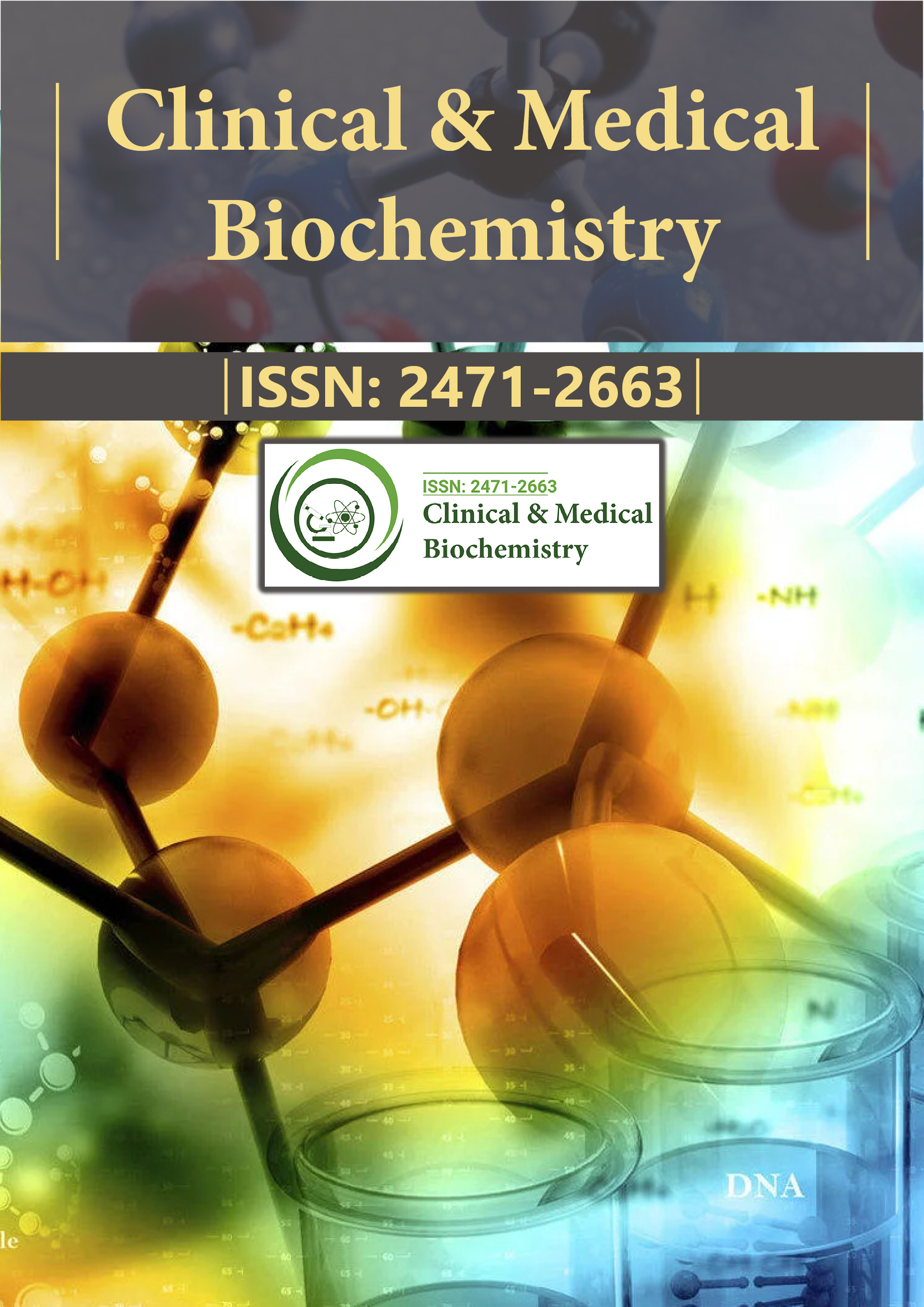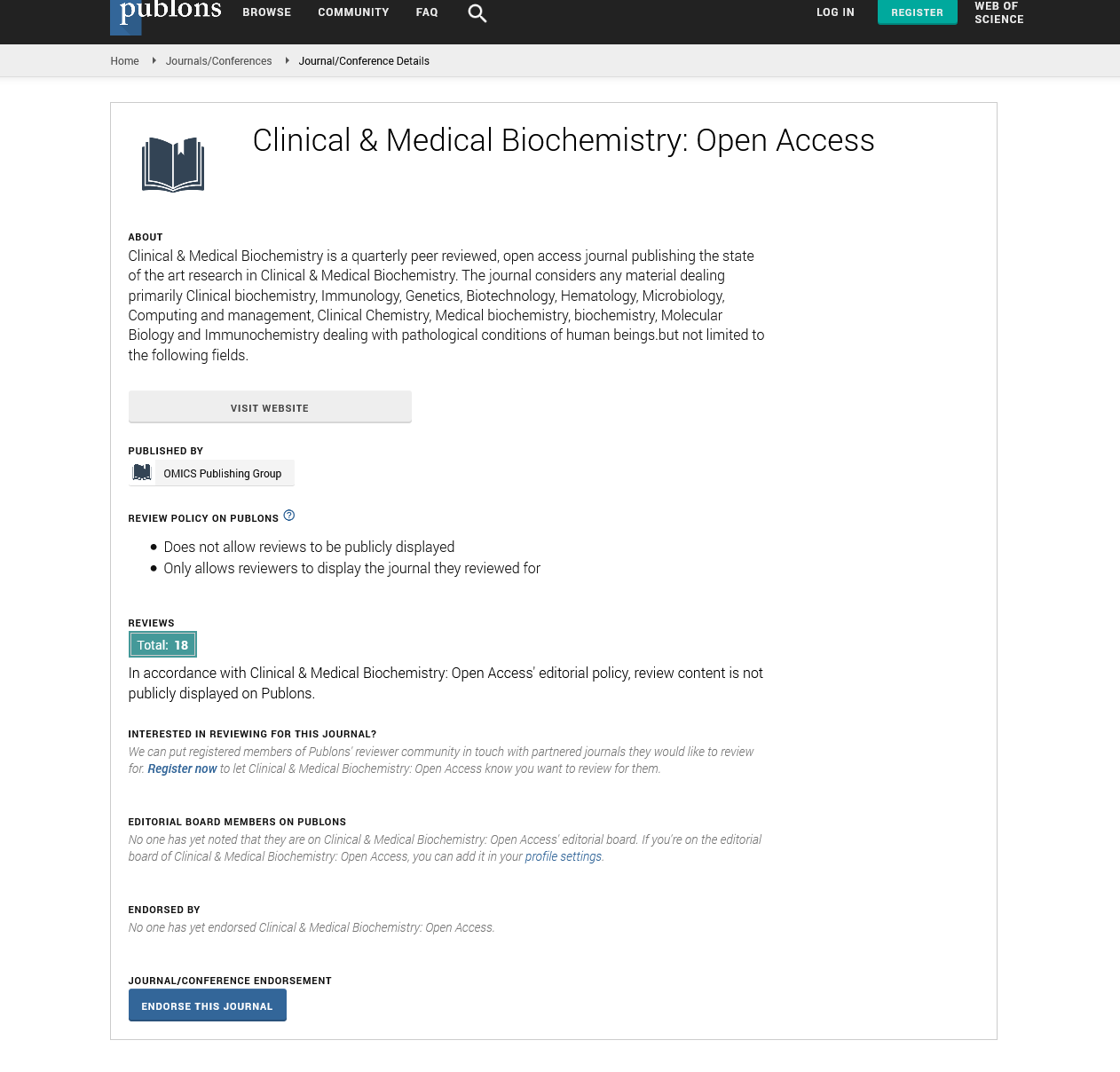Indexed In
- RefSeek
- Directory of Research Journal Indexing (DRJI)
- Hamdard University
- EBSCO A-Z
- OCLC- WorldCat
- Scholarsteer
- Publons
- Euro Pub
- Google Scholar
Useful Links
Share This Page
Journal Flyer

Open Access Journals
- Agri and Aquaculture
- Biochemistry
- Bioinformatics & Systems Biology
- Business & Management
- Chemistry
- Clinical Sciences
- Engineering
- Food & Nutrition
- General Science
- Genetics & Molecular Biology
- Immunology & Microbiology
- Medical Sciences
- Neuroscience & Psychology
- Nursing & Health Care
- Pharmaceutical Sciences
Abstract
Any Polymorphisms of CYP2C9 Affects the Biochemical Profile of Diabetic Patients Receiving Glibenclamide
Shlomit Koren, Ronit Koren, Adina Bar-Chaim, Patricia Benveniste-Levkovitz, Ahuva Golik and Amit Tirosh
Introduction: Glibenclamide, a hypoglycemic agent, is a member of the sulfonylurea family. It is metabolized by the hepatic P450 CYP2C9. Despite thorough pharmacokinetic characterization of glibenclamide, the evidence for a pharmacogenetic influence on the pharmacodynamics of this medication is scarce. The current study aims to evaluate a possible association between different CYP2C9 alleles and the pharmacodynamic effect of glibenclamide, including hypoglycemic events and required daily glibenclamide dosage. Methods: The patients included were aged ? 18 years, diagnosed with type II diabetes mellitus, and treated with metformin and glibenclamide for at least 3 months. Exclusion criteria were treatment with other hypoglycemic agents or with medications that affect CYP2C9 function. Patients underwent a medical interview, including detailed anti-glycemic treatment dosage and duration. Blood was drawn for CYP2C9 allele genotyping, glycosilated hemoglobin A1C, chemistry and a complete blood count. Patients were re-interviewed 1 month after inclusion for hypoglycemic event incidence. The patient?s genotype was classified as wild-type (WT) for *1/*1 alleles, or CYP2C9 polymorphism for any other alleles. Results: Fifty eight patients were recruited. Characteristics were similar in the two groups. Forty patients had WT genotype (69.0%), twelve patients had *1/*2 genotype (20.7%), five (8.6%) had *1/*3 genotype and one (1.7%) had *2/*3 genotype. Patients with CYP2C9 polymorphism had similar A1C levels (7.5 � 0.99 vs. 7.6 � 1.3, NS) but suffered more hypoglycemic episodes (? 2 episodes in 3 months; 5% vs. 22.2%, p=0.04) under similar glibenclamide dosage (6.5+4.2 vs. 5.3 � 3.9, NS). Conclusion: Our study suggests that diabetic patients with any CYP2C9 polymorphism have higher tendency to develop hypoglycemia when treated with glibenclamide, compared to those with wild type alleles. Further studies are needed to evaluate the clinical benefit from genotyping CYP2C9 before treatment initiation with glibenclamide or other drugs metabolized by CYP2C9 enzyme. Study points ? Most of the sulfonylurea drug family members are metabolized by the hepatic P450 CYP2C9 enzyme to their inactive form. ? Polymorphism in CYP2C9 may encode a lower activity CYP2C9 enzyme, with different alleles encoding enzymes with varied activity degree. ? Our study shows that any polymorphism in CYP2C9 gene expose patients treated with glibenclamide to higher risk of hypoglycemia compared with the wild type alleles.
Published Date: 2015-09-30; Received Date: 2015-09-16

